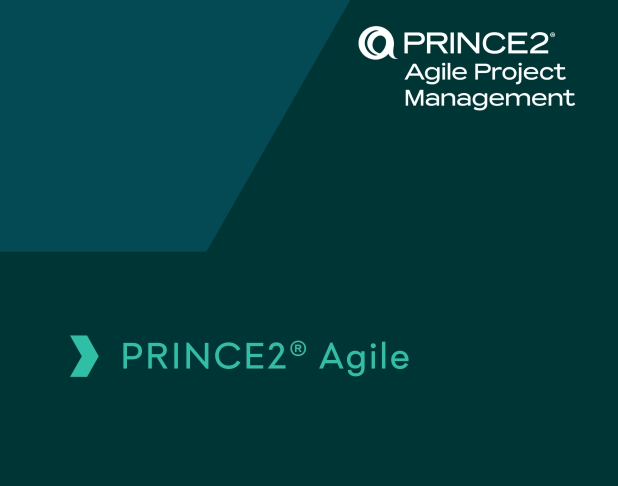This certification shows you how to integrate Agile delivery methods into the structured framework of PRINCE2 Project Management. You’ll learn practical ways to apply Agile principles without losing clarity or control. Recognised worldwide, PRINCE2 Agile gives you versatile expertise that can be applied across different sectors and project environments, expanding your skill set and career opportunities.
PRINCE2® Agile courses
PRINCE2 Agile combines the structure of PRINCE2 Project Management with the adaptability of Agile methods, helping you manage projects with confidence in dynamic environments.


Why PRINCE2 Agile?
PRINCE2 Agile combines the discipline of PRINCE2 Project Management with the adaptability of Agile approaches. It enables teams to manage uncertainty, collaborate more effectively, and deliver projects that stay on track while accommodating change. These skills are in demand across modern workplaces where agility and structure need to work hand in hand.
This course is particularly beneficial if you already know PRINCE2 Project Management and want to expand your capability into Agile-led projects.
- Internationally respected certification
- Stronger career prospects
- Practical tools for Agile project delivery
- A structured yet flexible method for managing projects
- Confidence to guide teams in dynamic settings
FAQs
PRINCE2 Agile training shows you how to apply Agile techniques within the proven structure of PRINCE2 Project Management. It introduces the key agile concepts and methods, offering clear guidance on adapting projects in fast-moving environments while maintaining control and direction.
How does PRINCE2 Agile work in practice?
PRINCE2 Agile combines the governance of PRINCE2 Project Management with the adaptability of Agile delivery. It shows you how to keep projects under control while introducing flexibility, making it suitable for dynamic business environments.
What sets PRINCE2 Agile apart from the standard PRINCE2 Project Management course?
PRINCE2 Project Management is a structured project methodology that follows defined processes. PRINCE2 Agile builds on this foundation by weaving in Agile tools and behaviours, so projects can stay organised but also adjust quickly when priorities shift.
Is the PRINCE2 Project Management Foundation course required before starting PRINCE2 Agile?
You don’t need to complete PRINCE2 Project Management Foundation to begin PRINCE2 Agile Foundation, though familiarity with the methodology can be helpful. To progress to PRINCE2 Agile Practitioner, you must first pass the PRINCE2 Agile Foundation exam.
Career development & support
Choosing the right course can raise a few questions. That’s why we offer flexible ways to learn, a choice of payment options, and extras like exam resit support to tailor your experience. You’ll find answers to common queries in our help centre, and if you’d prefer to speak to someone, our friendly customer team is just a message away.
Our resource centre is built to support your development as a project professional. From blogs on emerging trends to bite-sized videos and live webinars, you’ll find useful insights and practical tools to strengthen your skills and stay ahead in a fast-moving field.
Visit our resource centre
Do you prefer to learn at your own pace? Our interactive and engaging eLearning is the perfect self-study option, allowing you to move through resources and activities at a time that suits you.
Our in-person classroom courses provide an interactive and collaborative learning environment, where you will benefit from the knowledge and passion our trainers bring to the subject.
Our virtual courses provide the personal teaching experience of a classroom with the ease and flexibility of a virtual environment. All the benefits, without the travel!
Our blended courses combine eLearning with face-to-face training. Study the Foundation certification at your own pace and then use the Practitioner workshop to put the theory into practice.

"I cannot fault this, the PRINCE2 Agile course has been perfect. I would highly recommend PRINCE2.com. They are quick to answer on the phone and email."
Arun Prathapan, PRINCE2 Agile learner

